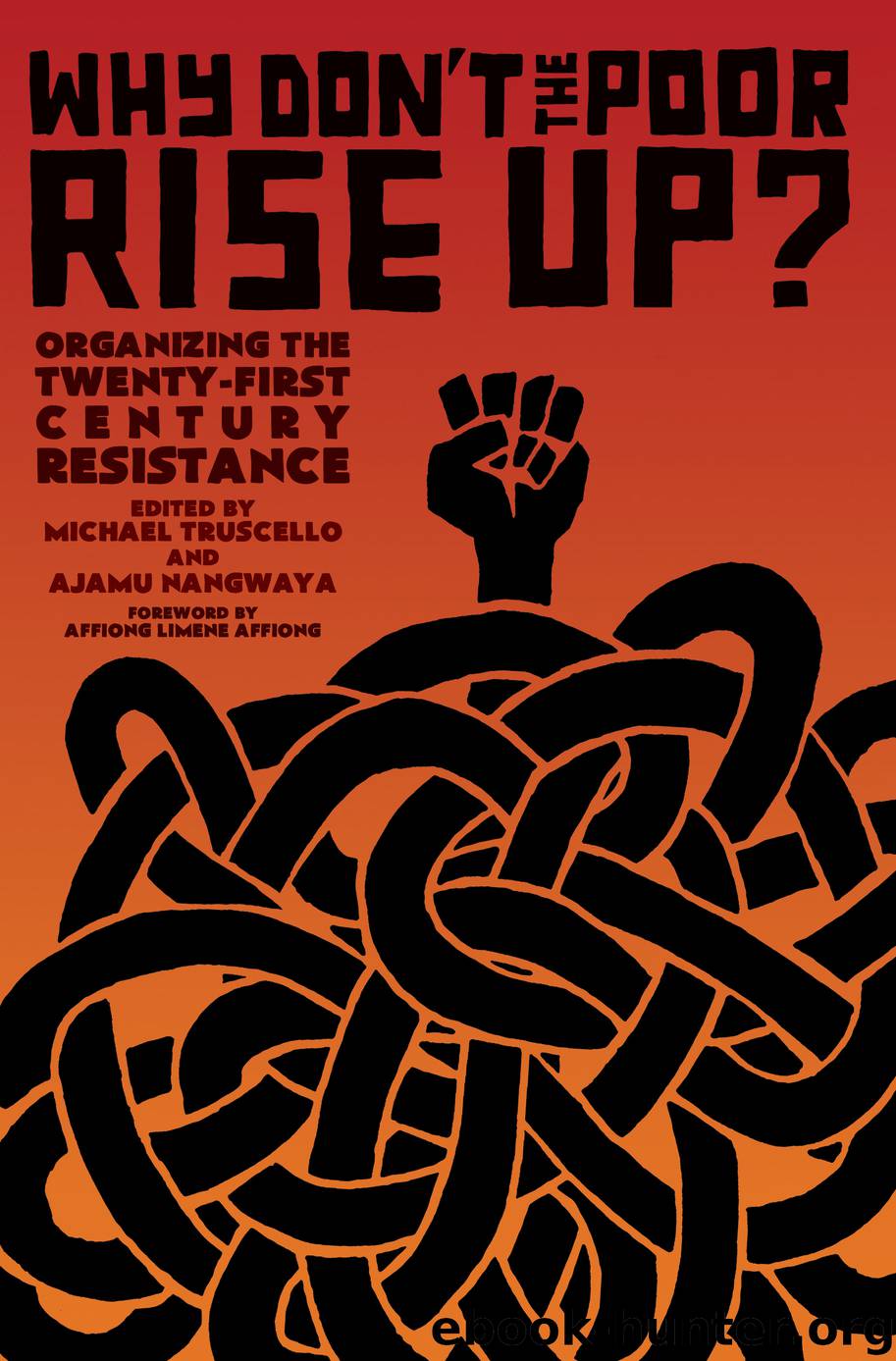Why Don't the Poor Rise Up? by Michael Truscello & Ajamu Nangwaya

Author:Michael Truscello & Ajamu Nangwaya
Language: eng
Format: epub
Publisher: AK Press
Published: 2017-06-08T16:00:00+00:00
Society Without Sociability
Late Notes About Margaret Thatcher and Jean Baudrillard
Franco “Bifo” Berardi
In The Mass Psychology of Fascism, Wilhelm Reich writes that the troubling question is not why people go on strike and revolt, but the other way around: Why do people not go on strike all the time?1 Why do people not rebel against oppression? Today, after the rise and fall of the Communist hope in the last century, there are many answers to this question. People are unable and unwilling to revolt because they do not find the way to autonomy and solidarity, because of precariousness, anxiousness, and competition, which are the main features of the present organization of work. The effects of the deterritorialization of labor, and of the technological fragmentation of the social body, result in the inability to create networks of solidarity and in widespread loneliness broken by sudden random explosions of rage.
A second answer may be based on the dissolution of the physical identity of power. Power is nowhere and everywhere, internalized and inscribed in the techno-linguistic automatisms called governance. Recent waves of rebellion have proved unable to focus on a physical center of financial domination because a physical center does not exist. The precarisation of labor, which implies the end of a territorial proximity of labor, physical isolation, and the widespread sentiment of anxious competition among workers, has provoked the dissolution of social solidarity that was predicted in the works of Jean Baudrillard since the second part of the 1970s. In those years of transition from the industrial civilization to the digital civilization, changes occurred in the conceptual field and in the disciplinary organization of knowledge. This disciplinary reshuffling reflects the transformation that took place in the decades of the neoliberal reformation, which obviously intersects with digital technology.
The dissolving of the masses
In the book Dark Fiber, Geert Lovink observes that the academic study of mass psychology is abandoned in the 1980s, and replaced by a wide range of disciplines: sociology, psychology, cybernetic science, cultural studies, and media theory.2 I don’t want to investigate the academic motivations and implications of this disappearance and replacement. I want to focus on the real disappearance of the modern masses as a homogeneous body in society.
Masses are actually fading, almost vanishing, when the emergence of the post-mass media technology for network-communication dispels the crowd, turning it into a sprawl of connecting atoms, and the process of precarisation of labor disintegrates the physical proximity of workers. Social precarity indeed can be described as a condition in which workers are continuously moving positions, so that nobody will meet anybody twice in the same place. Cooperation without physical proximity is the condition of existential loneliness coupled with all-pervading productivity.
Workers do not perceive themselves anymore as the parts of a living community; they are rather compelled to compete in a condition of loneliness. Although they are exploited in the same way by the same capitalist entity, they are no longer a social class because in their material condition they can no longer produce
Download
This site does not store any files on its server. We only index and link to content provided by other sites. Please contact the content providers to delete copyright contents if any and email us, we'll remove relevant links or contents immediately.
| Anarchism | Communism & Socialism |
| Conservatism & Liberalism | Democracy |
| Fascism | Libertarianism |
| Nationalism | Radicalism |
| Utopian |
The Secret History by Donna Tartt(19039)
The Social Justice Warrior Handbook by Lisa De Pasquale(12185)
Thirteen Reasons Why by Jay Asher(8887)
This Is How You Lose Her by Junot Diaz(6873)
Weapons of Math Destruction by Cathy O'Neil(6263)
Zero to One by Peter Thiel(5785)
Beartown by Fredrik Backman(5735)
The Myth of the Strong Leader by Archie Brown(5495)
The Fire Next Time by James Baldwin(5429)
How Democracies Die by Steven Levitsky & Daniel Ziblatt(5211)
Promise Me, Dad by Joe Biden(5141)
Stone's Rules by Roger Stone(5080)
A Higher Loyalty: Truth, Lies, and Leadership by James Comey(4947)
100 Deadly Skills by Clint Emerson(4917)
Rise and Kill First by Ronen Bergman(4776)
Secrecy World by Jake Bernstein(4739)
The David Icke Guide to the Global Conspiracy (and how to end it) by David Icke(4699)
The Farm by Tom Rob Smith(4501)
The Doomsday Machine by Daniel Ellsberg(4483)
